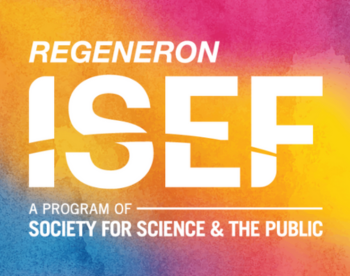15 Data Science Research Topics for High School Students
[elementor-template id="1670"]
Data science research is an interdisciplinary field, combining elements of mathematics, statistics, professional programming, advanced analytics, artificial intelligence (AI), and machine learning, along with domain-specific knowledge, to extract actionable insights from organizational data to inform decision-making and strategic planning. Data scientists gather raw, structured, and unstructured data from a variety of sources, then process and analyze this data to uncover patterns, trends, and associations, thus extracting valuable information.
The core areas of data science research include foundational theories, data preprocessing, data computation, and data management. It not only focuses on the data itself—studying its types, states, attributes, and transformation rules—but also offers a new methodology for both the natural and social sciences, revealing the phenomena and rules governing nature and human behavior. The methods and techniques of data science can be applied across multiple domains, including finance, healthcare, retail, logistics and supply chain management, media, and entertainment, encompassing almost every aspect of society.
Data science research is a continually evolving field, leveraging advanced technologies and methodologies to process and analyze data in order to discover new knowledge, create value, and support decision-making and problem-solving.
In this edition, mentors from Embark have carefully selected 15 cutting-edge research topics, covering the diverse applications and profound insights of data science. These topics not only challenge your intellectual boundaries but also open a gateway to the world of data, inspiring you to explore the hidden potential and innovative opportunities behind the data. Here, you will not only learn how to manage data but also discover how data can transform the world.
Social and Cultural Data Analysis
Social and cultural data analysis studies data related to social structures and cultural phenomena with the aim of revealing how social trends and cultural differences shape individual behavior. By meticulously analyzing quantitative and qualitative data, this field can not only predict directions of cultural development but also provide scientific backing for policymakers, aiming for more effective social interventions. For high school students, delving into this research area can enhance their interdisciplinary thinking and analytical skills, guiding them to understand the deep complexities of social phenomena and offering innovative perspectives and methods to address social issues. You can explore the following research directions:
1.Impact of Social Media on Adolescent Depression
Investigate the specific impact of Instagram and Tumblr on adolescent depression in the United States by tracking posts and interaction patterns. Analyze the frequency of use, content types, and social network structures to understand their correlation with depression among teens. This can provide precise data support for mental health education and aid in designing targeted intervention measures.
2.Analysis and Strategies for Low Participation in Urban Community Cultural Activities
Focus on community cultural activities in New York City to analyze specific reasons for low participation, such as insufficient attraction of events, unreasonable timing, or inadequate publicity. Collect and analyze event data and resident feedback to propose practical improvement strategies, enhancing participation and fostering a sense of belonging and happiness among community residents.
Economic and Financial Data Analysis
Economic and financial data analysis studies economic indicators, market data, and financial transaction records to uncover fluctuations in economic cycles, market trends, and investment risks. Research in this field is crucial for predicting economic variations, optimizing investment strategies, and maintaining financial stability. For high school students aspiring to the financial sector, practical data analysis experience allows for a deeper understanding of economic principles and financial models. You might explore the following research directions:
3.Evaluation of Housing Assistance Policies for Low- and Middle-Income Families in the US
Analyze the impact of housing assistance policies in California on low- and middle-income families by collecting and examining data on economic conditions, housing quality, and community satisfaction before and after policy implementation. Evaluate the real effectiveness of these policies and identify issues encountered during implementation, providing a scientific basis for policy optimization.
4.Impact of Social Media Sentiment on Technology Company Stock Prices
Examine the influence of social media sentiment on the stock prices of US technology companies using Twitter and Reddit as case studies. Collect and analyze social media sentiment data and stock price movements to uncover the impact and duration of negative sentiment, positive evaluations, and breaking news on stock prices. This can support crisis management for technology companies and inform investment decisions for investors.
Healthcare and Medical Data Analysis
The field of healthcare and medical data analysis focuses on leveraging medical data to improve patient care, optimize treatment plans, and reduce healthcare costs. Research in this area involves disease pattern recognition, treatment outcome evaluation, and public health policy analysis. High school students exploring this field will have the chance to learn about biostatistics, epidemiology, and health information technology.
5.Application of Telemedicine in Chronic Disease Management
Investigate the impact of telemedicine on managing chronic diseases like diabetes. Evaluate telemedicine's effectiveness in enhancing blood sugar control, reducing complications, and improving patients' quality of life by collecting and analyzing patient health data, utilization rates, and satisfaction feedback.
6.Impact of Regional Healthcare Quality on Public Health Outcomes
Conduct a comparative analysis of the healthcare quality in the Eastern and Western U.S. regions to determine its impact on public health outcomes. This includes examining the relationships between healthcare quality and life expectancy, chronic disease incidence, and patient satisfaction with medical services.
Educational Data Analysis
The field of educational data analysis aims to enhance education quality, promote educational equity, and facilitate student development by analyzing learning outcomes, teaching methods, and resource allocation.
7.Impact of Online Learning Platforms on K-12 Student Achievement
Study the impact of the Khan Academy online learning platform on U.S. K-12 student performance. Assess the platform’s effectiveness in improving academic achievement, fostering interest in learning, and promoting educational equity.
8.Effect of Regional Educational Resource Allocation on Equity
With California and Texas as case studies, analyze how educational resource distribution affects educational equity. Explore the relationship between resource allocation and student academic performance and access to educational opportunities.
[elementor-template id="1677"]
Environmental and Ecological Data Analysis
The field of environmental and ecological data analysis evaluates environmental risks, conserves natural resources, and maintains ecological balance by analyzing data on environmental monitoring, ecosystem changes, and biodiversity. This research is crucial for tackling climate change, protecting biodiversity, and achieving sustainable development. High school students in this field will learn environmental science principles, ecological modeling, and data analysis techniques.
9.Impact of Urban Green Space Distribution on Air Quality
Using Los Angeles and Chicago as examples, this research analyzes how the distribution of urban green spaces affects air quality. By collecting and analyzing data on green space area, type, distribution, and air quality, we can uncover their impact on pollutant concentration, air pollution events, and residents' health, providing support for urban planning and environmental policy-making.
10.Impact of Climate Change on U.S. Agricultural Production
This study examines how climate change specifically affects agricultural production in the U.S. Midwest. By analyzing data on temperature changes, precipitation patterns, extreme weather events, and crop yields, it reveals the mechanisms by which climate change influences agriculture, aiding in the development of adaptation strategies and policies.
Transportation and Logistics Data Analysis
By studying traffic flow, logistics routes, and supply chain management data, this research aims to optimize transportation efficiency, reduce logistics costs, and enhance supply chain responsiveness. It is essential for alleviating traffic congestion, improving logistics service quality, and boosting supply chain resilience. High school students will learn operations research principles, geographic information systems, and data analysis techniques.
11.Impact of Intelligent Transportation Systems on Urban Congestion
Analyzing New York and San Francisco, this research evaluates the effectiveness of Intelligent Transportation Systems (ITS) in alleviating urban congestion. By collecting data on traffic flow, accident rates, and travel times, we assess how well ITS improves urban traffic conditions.
12.Impact of E-commerce Growth on Logistics Efficiency
Fousing on platforms like Amazon, this study analyzes the impact of e-commerce growth on logistics efficiency. By tracking logistics data, delivery times, and costs, it reveals how e-commerce transforms operations in the logistics industry and enhances efficiency.
Political and Public Policy Data Analysis
Thi field of political and public policy data analysis evaluates policy impacts, forecasts political trends, and optimizes the allocation of public resources through the analysis of policy outcomes, public opinion, and electoral data. High school students in this field develop critical thinking skills and gain a deeper understanding of the complexities behind policy-making.
13.Influence of Social Media on Presidential Elections
This study, using Twitter and Facebook as examples, analyzes the influence of social media on presidential elections. By tracking voter interactions, information dissemination, and voting trends, it reveals the role of social media in modern politics.
14.Impact of Educational Policies on Student Academic Performance Across U.S. Regions
This reserch contrasts the impact of different state education policies on students' academic performance in the U.S. By collecting and analyzing data on education policies, student performance, and school resources, it reveals the relationship between policy decisions and educational outcomes.
Consumer Behavior Data Analysis
The field of consumer behavior data analysis uncovers consumption trends, forecasts market shifts, and optimizes product positioning by analyzing consumers' purchase records, online behaviors, and market feedback. Through this research, high school students can better understand consumer needs, learn how to develop marketing strategies, and enhance customer satisfaction.
15.Shopping Habits of U.S. Consumers Across Different Age Groups
Ths study analyzes shopping data of consumers across various age groups to reveal differences in shopping habits, preferences, and spending capacities. These insights provide valuable data support for crafting effective marketing strategies.
Embark Exploration Program
Since its inception in 2016, Embark has focused on designing tailored scientific research training programs for teenagers, aiming to ignite their research potential. Our core team members are graduates from top American universities, possessing deep academic backgrounds and rich educational experience.
Embark brings together over 3,000 outstanding mentors from world-renowned institutions such as the Ivy League, MIT, Caltech, Johns Hopkins University, and Carnegie Mellon University to provide premier research guidance for students.
We offer personalized one-on-one research mentorship, crafting unique research topics based on each student's interests and strengths. Embark not only helps students systematically enhance research skills and build solid research frameworks but also closely integrates research with real-world applications, ensuring students comprehend the value of research. These experiences significantly enhance students' competitive edge in university applications.
For more details, please visit the Embark Exploration Program. If you have any questions or need further information, feel free to contact us. We are more than happy to assist and explore collaboration opportunities.
[elementor-template id="1682"]



